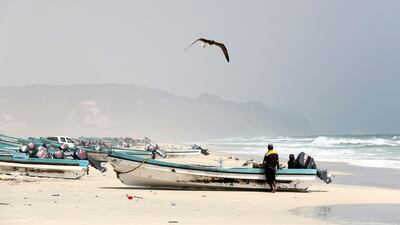The Oxford English Dictionary included 650 new entries in its latest update in October last year. Words such as Angelena, a female native of Los Angeles, and blert, a weak or cowardly person were added. Later this month the OED will be updated again, further legitimising the vocabulary of the world's 1.5 billion English speakers.
Meanwhile, however, many of the planet’s minority languages teeter on the precipice of extinction. Approximately 400 tongues have vanished in the past century – roughly one every 12 weeks. Some linguists estimate that between 50 and 90 per cent of the world's remaining 6500 spoken languages will vanish by the end of this century. Only around 200 of our spoken tongues have a written form, so when the last speaker of an unwritten language dies, the tongue dies with them and along with it, poems, stories and songs.
Imagine being the last speaker of a vanishing tongue. I cannot conceive of a lonelier fate. In 2017 Wilma Ross passed away, leaving her sister, Jessie Ross, as the last speaker of East Sutherland Gaelic, a language once widely used in the northeast of Scotland. A similar outcome threatens Bathari, a beautiful and critically endangered southern Arabian dialect spoken in parts of Oman. As reported in The National, fewer than 20 fluent Bathari speakers remain.
In the last decade alone, we have witnessed the near death of languages such as Livonian, a part of the Baltic branch of the Indo-European language family, Aka-bo, which used to be spoken in the Andaman Islands, and Klallam, a Native American language. The rate of language extinction is far quicker than that of species extinction. Like the West African Black Rhino that was declared extinct in 2011 and the Chinese River Dolphin which has not been seen since 2002, we are witnessing the disappearance of languages, our shrinking biodiversity mirrored by a dwindling linguistic diversity.
Some individuals have fought hard to keep their critically endangered languages alive. Dolly Pentreath, for example, a fish seller from Cornwall in the UK, persistently vowed that she would not speak in English. In 1777 Dolly died, and with her the traditional Cornish language breathed its last breath. Or so it was thought. Fortunately, based on written sources, and a man who kept the language alive by speaking it to his cat, Cornish was resurrected and has enjoyed something of a revival in the 20th century. Cornish lives on, albeit very precariously, with a few hundred fluent speakers.
Another language fighting back is Cymraeg – or Welsh as it is known in English. The language was flagged as "vulnerable to extinction" by the United Nations Educational, Scientific and Cultural Organisation (Unesco) after losing ground to English over the past century. In 1850 around 90 per cent of the Welsh population spoke Welsh, today it is holding steady at about 20 per cent. The Welsh government recently set further ambitious targets to ensure a million speakers by 2050.
Initiatives to revive Welsh include training teachers. There is also a plan to increase the number of children learning it at all stages of their education. This is an incredible turnaround, considering that just over 100 years ago Welsh children were severely punished if they were caught speaking Welsh at school. Against all the odds then one of the oldest living European languages has survived and may yet thrive.
Social media is an unlikely ally in the fight to save endangered languages. Minority languages can often get overshadowed by what is spoken in school or used in the mainstream media. Social media, however, allows speakers of minority languages to connect and create worlds independent of location; spaces where their languages are spoken, learned, amplified and preserved.
In an article titled Could Social Media Save Endangered Languages? Johanneke Sytsema, a researcher at Oxford University's faculty of linguistics, philology and phonetics describes how the speakers of Frisian, Sytsema included, are keeping the endangered language alive through social media. Similarly, Kevin Scannell, a professor of computer science at Saint Louis University, created Indigenoustweets.com, a website that tracks tweets in rare indigenous languages, helping people locate and connect with others speaking their endangered tongue online.
While the UAE's official language, Arabic, is far from being endangered, there are concerns about Arabic losing ground to other tongues, especially among the younger generation. Numerous government initiatives have been launched to preserve and promote the Arabic language in the UAE. In 2012, Sheikh Mohammed bin Rashid, Vice President and Ruler of Dubai, launched an Arabic language charter. This document stands as a foundation and framework for all policies and laws related to preserving the Arabic language and promoting its use in public life. In a recent study published last year in the peer-reviewed journal, Big Data, we looked at the use of Arabic on Twitter in the UAE between 2013 and 2018. Relative to the use of English, the use of Arabic on Twitter generally increased over this period, especially in Dubai. The future of Arabic in the UAE is safe. However, indigenous UAE dialects such a Shehhi, widely spoken in the mountain communities of Ras Al Khaimah, might go the way East Sutherland Gaelic. I hope it does not come to this but I can imagine a time in the not too distant future when a linguist might find herself trekking up to a remote mountain village in Ras Al Khaimah. The object of her visit is to meet Mariam Al-Shehhi, the last native speaker of the Shehhi dialect.
Justin Thomas is a psychology professor at Zayed University


